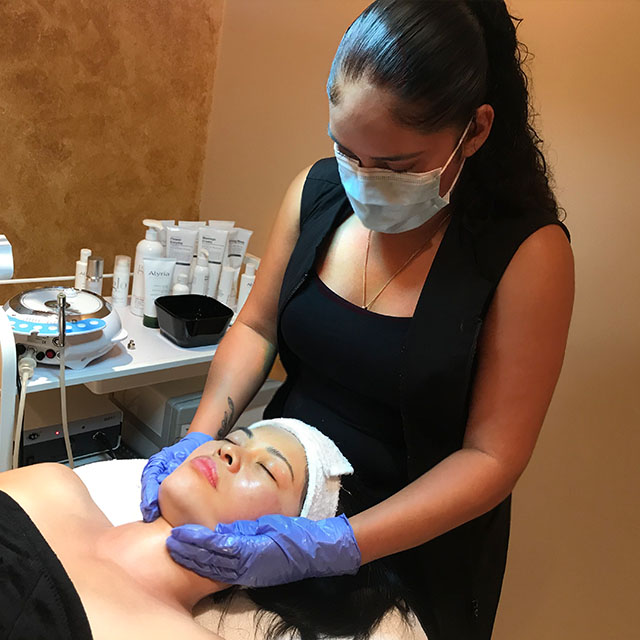Chemical Peels
A chemical peel is a cosmetic procedure useful for treatment of a wide range of conditions including acne, brown spots (sun spots / age spots), and wrinkles.
It involves application of a chemical solution onto skin to produce a controlled chemical burn. Sounds terrible, but not necessarily so, as the severity of the “burn” is controlled, so as to produce a benefit rather than damage. The (controlled) injury that is inflicted onto the skin by a peel procedure stimulates body’s healing process, resulting in a rejuvenated appearance of the treated area. The chemicals used for a chemical peel can vary in potency from:
- “light” such as glycolic acid; to,
- “medium” such as Trichlor-acetic acid (TCA); to,
- “deep”, such as Phenol.
As the strength of the chemical used for the peel escalates, so does the risk of the procedure, with glycolic acid peel being the safest, to phenol peel being the most risky.
Although light and medium chemical peels are still popular, the deeper chemical peels are being replaced by laser peel (laser resurfacing) due to greater control of the depth of the peel with laser, as well as greater safety of laser peels over deep chemical peels.
Major Benefits
Mild chemical peels, such as glycolic acid peel and peels involving salicylic acid, are a very useful tool in treating acne and pores, stimulating dermal collagen production, and addressing the tone and radiance of the skin.
Medium peels, such as TCA peel, can still be used to target pigmentation and wrinkles. Phenol peel, while very effective in treating pigmentation and wrinkles, is substantially more risky than a laser peel, and is performed more rarely.
However, over-expectations should be avoided as no chemical peel can produce miracles. Chemical peels can’t remove deep scars, deep wrinkles and folds or tighten sagging skin.




